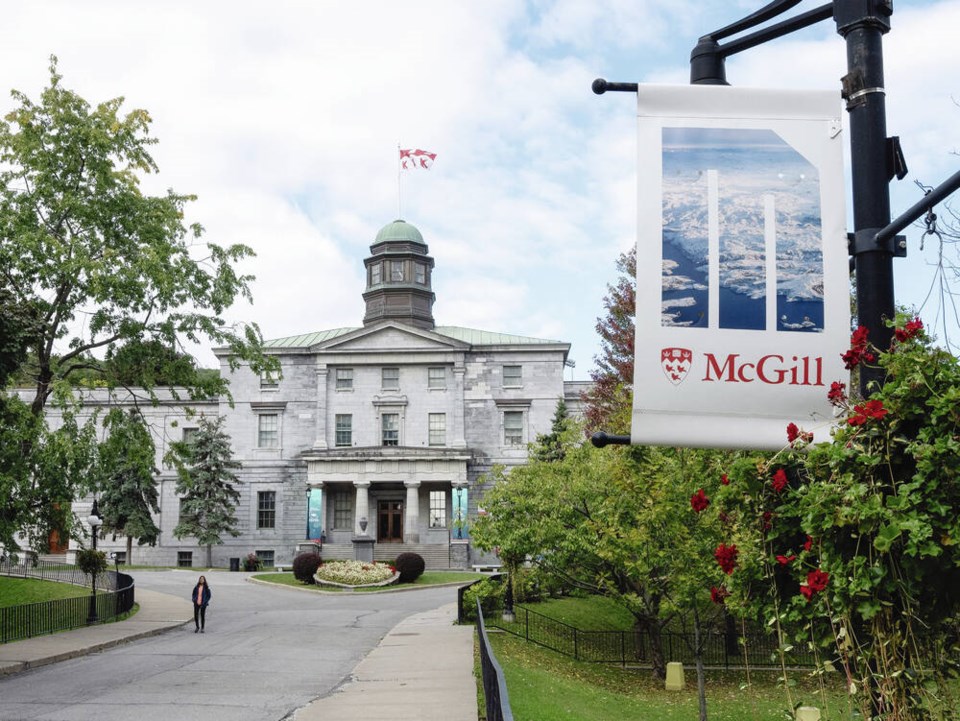VANCOUVER — Ireland Bassendowski, 17, was elated to receive an acceptance email from Bishop’s University in Quebec at her home in Dawson Creek last week.
But the Grade 12 student’s excitement wore off Friday when she heard of Quebec’s decision to double the cost of tuition for out-of-province students planning to attend its universities starting next fall.
“My daughter’s dream to study at Bishop’s and become a high school math teacher has been crushed because of the cost,” said her mother, Diane Bassendowski. “She went from being on a high, telling everyone at school about her acceptance to being one very sad kid.”
While the tuition hike is part of Quebec’s plan to preserve French in the province and increase funding for French-language universities, it’s begun to affect families in the rest of Canada.
Some students, such as Bassendowski, are turning to other post-secondary options. Her tuition at Bishop’s is estimated to cost around $50,000 more than expected, so the teen has begun filling out an application to attend the University of B.C.
“Ireland’s UBC paperwork will be wrapped up by this weekend,” said her mother. “So, maybe Quebec won’t be getting a new high school teacher in five years after all. Maybe it will be B.C.”
While the tuition increase affects out-of-province undergraduate and graduate students, students already enrolled in Quebec’s system will continue to pay the old rate.
The B.C. Association of Institutes and Universities, representing nine post-secondary institutions in the province, agrees that the policy change could lead to more students enrolling in post-secondary programs in provinces other than Quebec, such as B.C.
“It sure makes our province look like a more attractive choice,” said president Nikki Macdonald, who attended Montreal’s McGill University for undergraduate studies.
Macdonald says that when she was a prospective student, not only was the cost of tuition a key financial consideration, but so was the cost of housing.
“When I went to McGill, the cost of living in Montreal was much cheaper than it was in Vancouver or Toronto,” Macdonald said.
Most recent data from the Canada Mortgage and Housing Corp. shows that in 2022, a one-bedroom apartment in Montreal costs at least $500 less a month to rent than in Vancouver or Toronto.
The Alliance of B.C. Students has criticized the tuition hike.
Alliance chair Manpreet Kaur said the solution for provinces including Quebec is “not to increase tuition and put the burden on the backs of students, but for governments to step up and adequately fund post-secondary education so that students, graduates, post-secondary institutions and economies are better off.”
Students at two other English-speaking universities in Quebec — Concordia and McGill — voiced similar concerns Thursday in a joint statement issued by their student unions.
“This fee increase of $8,992 to $17,000 will price out the poorest out-of-province students, saddle students with further debts and require students to work even more during their studies to afford their education.”
Before the change, out-of-province students attending Quebec universities were already paying more in tuition than the average Canadian who is enrolled full-time in an undergraduate program. According to Statistics Canada, average tuition was $6,693 in the last academic year.
Quebec Premier François Legault said the tuition increase is part of the government’s effort to reduce the amount of English spoken on Montreal streets.
But Montreal Mayor Valérie Plante is worried that Quebec’s plan will drive prospective students and their financial contributions elsewhere, to cities such as Toronto.
“If this government strongly believes in a strong economy, if it wants to reduce the gap between Ontario and Quebec, I have to say this measure will support more people going to Toronto universities,” Plante said during a news conference last week.
“We can protect French, but we should make sure the reputation of the metropolis is not adversely affected by this decision.”
B.C. Post-Secondary Education Minister Selina Robinson said she doesn’t think it’s appropriate to charge additional fees for out-of-province students and B.C. will not be following suit.
“I don’t think we need to be pitting ourselves against each other.”
— With files from Katie DeRosa, Vancouver Sun



